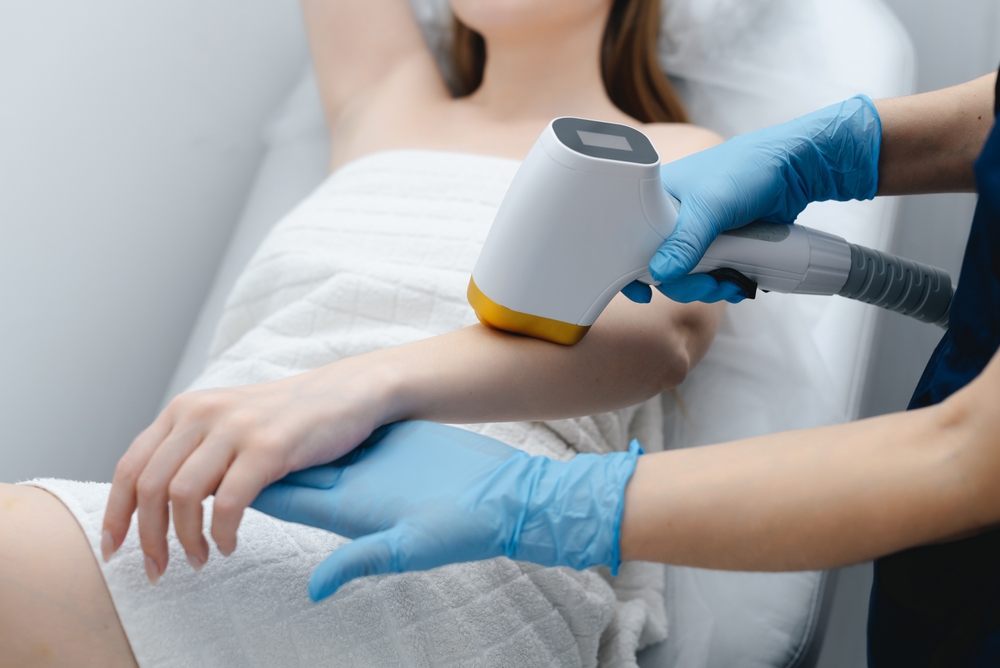Laser hair removal has become a popular method for achieving long-term hair reduction, offering a more efficient and less painful alternative to traditional hair removal methods. However, one often overlooked aspect of hair growth is the role hormones play in determining hair density, growth patterns, and overall hair health. This article delves into the intricate relationship between hormones and hair growth, particularly focusing on insights relevant to Laser hair removal in Abu Dhabi ( إزالة الشعر بالليزر في أبو ظبي ).
Understanding Hair Growth
Before exploring the hormonal influences on hair growth, it is essential to understand the hair growth cycle. Hair growth occurs in three main phases:
- Anagen Phase: This is the active growth phase, where hair follicles are in their most robust state. Hair can grow for several years during this phase.
- Catagen Phase: This transitional phase lasts for a few weeks, during which hair growth slows down, and the hair follicle begins to shrink.
- Telogen Phase: In this resting phase, the hair stops growing and eventually falls out, making way for new hair to grow.
Understanding this cycle is critical when considering laser hair removal, as the procedure is most effective during the anagen phase.
The Role of Hormones in Hair Growth
Hormones play a significant role in regulating various bodily functions, including hair growth. Here are some of the primary hormones involved:
Androgens
Androgens, such as testosterone and dihydrotestosterone (DHT), are often associated with hair growth. While these hormones are vital for hair growth in certain areas (like the beard and chest in men), they can contribute to unwanted hair growth (hirsutism) in women. Increased levels of androgens can lead to:
- Thicker and coarser hair in unwanted areas
- Thinning hair on the scalp
- Changes in the hair growth cycle
Estrogen
Estrogen is primarily known as a female hormone, and it plays a crucial role in regulating the hair growth cycle. Higher estrogen levels are often associated with healthier hair growth. When estrogen levels drop, as seen during menopause or due to hormonal imbalances, women may experience hair thinning or increased hair loss.
Progesterone
Progesterone, another hormone involved in the menstrual cycle, can also affect hair growth. Changes in progesterone levels can impact hair density and growth patterns, potentially leading to increased hair loss or hirsutism.
Thyroid Hormones
Thyroid hormones regulate metabolism and can significantly influence hair growth. An underactive thyroid (hypothyroidism) can lead to hair thinning, while an overactive thyroid (hyperthyroidism) may result in hair loss. Ensuring that thyroid hormone levels are balanced is essential for maintaining healthy hair growth.
Hormonal Imbalances and Hair Growth Issues
Hormonal imbalances can lead to various hair growth issues, including:
- Polycystic Ovary Syndrome (PCOS): A common condition in women characterized by elevated androgen levels, PCOS can lead to excessive hair growth on the face and body while causing hair thinning on the scalp.
- Menopause: The hormonal changes during menopause can result in hair thinning and changes in hair growth patterns.
- Thyroid Disorders: Imbalances in thyroid hormones can lead to hair loss or thinning.
Understanding these conditions is crucial for individuals considering laser hair removal, as addressing the underlying hormonal issues may be necessary for optimal results.
How Laser Hair Removal Works
Laser hair removal utilizes concentrated light beams to target hair follicles during the anagen phase, damaging them and inhibiting future hair growth. The effectiveness of the procedure is closely tied to the hormonal balance in the body. For example:
- Androgens: Elevated androgen levels can stimulate hair growth, which may necessitate more frequent laser treatments to maintain desired results.
- Estrogen: Balanced estrogen levels can support healthier hair growth, potentially leading to better results from laser hair removal.
Preparing for Laser Hair Removal
Before undergoing laser hair removal, individuals should consider their hormonal health. Here are some steps to take:
Consult with a Healthcare Professional
Before beginning laser hair removal, it is advisable to consult with a healthcare provider to discuss any hormonal imbalances. This consultation can help determine the most effective treatment plan, including addressing underlying conditions such as PCOS or thyroid disorders.
Hormonal Testing
If experiencing hair growth issues, hormonal testing can provide insights into potential imbalances. Identifying these issues can help in managing hair growth more effectively, enhancing the results of laser hair removal treatments.
Timing of Treatments
Scheduling laser hair removal sessions during the optimal hair growth phases can maximize effectiveness. For those with hormonal fluctuations, tracking hair growth cycles may help determine the best times for treatment.
Post-Treatment Care
Following laser hair removal, it is crucial to follow proper aftercare instructions to ensure the best results. This includes:
- Avoiding sun exposure to reduce the risk of pigmentation changes.
- Following up with the laser hair removal provider to monitor hair growth and adjust treatment plans if necessary.
- Consulting with a healthcare professional if hormonal imbalances are suspected to address any underlying issues.
Conclusion
Understanding the link between hormones and hair growth is essential for anyone considering laser hair removal. By recognizing the impact hormones have on hair growth patterns and density, individuals can make informed decisions about their hair removal options. Consulting with healthcare professionals and laser hair removal experts can help address underlying hormonal issues and optimize treatment results. With the right approach, laser hair removal can provide long-lasting solutions for unwanted hair, leading to smoother skin and increased confidence.





Comments